We all have things lying around the house that we know we should replace, but just how often should we be swapping them out? Here's what the experts say about these six common household items.
Toothbrush
When toothbrushes get old and frayed, they actually stop cleaning as effectively. The American Dental Association recommends that you replace your toothbrush every three to four months, or sooner if the bristles look worn out. The ADA also advises that children's toothbrushes typically need to be replaced more often than adult brushes, so keep a regular eye on the bristles in your bathroom and update accordingly!
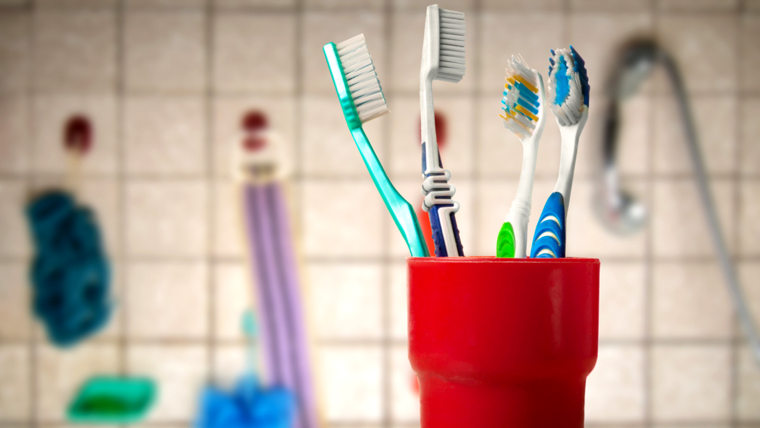
Eye makeup
The longer your eye makeup is lying around, the easier it is for bacteria or fungi to get in, which can cause eye or skin infections. "The bathroom is where people tend to store cosmetics, and, unfortunately, it’s probably the perfect place for bacteria to grow — it’s warm, and it’s moist," Kelly Dobos, a cosmetic chemist, told TODAY.com.

Mascaras or other liquid or creamy products that you use around the eyes should be replaced more often than other kinds of makeup, as they can cause you more problems the older they get. "The things that are most likely to give you an infection are creams, or things that are wet or dark or damp," said optometrist Dr. Andrea Thau. The FDA notes that most manufacturers recommend discarding your mascara two to four months after purchase, and experts agree that most eye makeup should be replaced after three months.
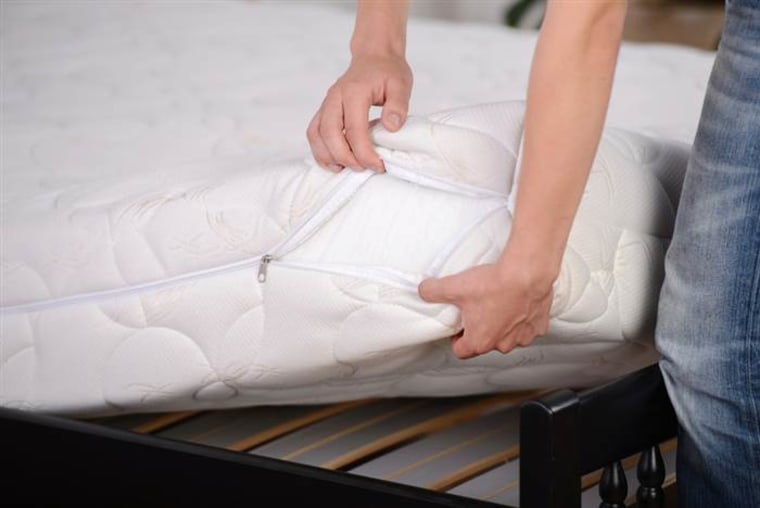
Mattress
Are you tossing and turning more than usual, or waking up with back pain? It could be time to swap out your mattress. Most good quality mattresses have a life expectancy of nine or 10 years, says The Sleep Foundation.
A few ways to tell if you're due for a replacement: You can feel the coils in your mattress, you have aches and pains when you wake up, and when you get up, you can see the indentations or impressions in the mattress from where you've slept.
RELATED: What to know when buying a new mattress
Side note: Your pillows will likely need freshening way before your mattress. Here's a great guide on how to clean them, and the “fold” test can tell you if you need new ones altogether: Fold the pillow in half and let go. If it unfolds and bounces back to its shape, keep sleeping! If it stays folded, it's time to send it to pillow heaven.
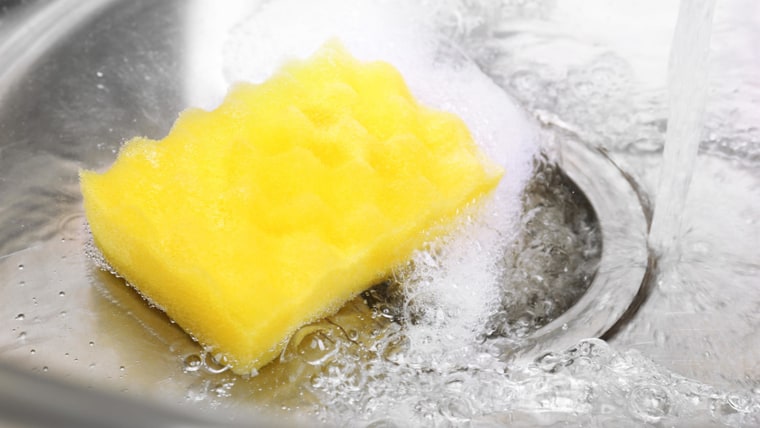
Kitchen sponge
Sponges collect some of the grossest things in your kitchen, and can become breeding grounds for bacteria like E.coli, salmonella, yeast and mold. You can keep things clean and extend the life of your sponge by cleaning it daily in hot, soapy water, zapping wet sponges in the microwave for a minute or two, or running them through the dishwasher.
None of these methods fully eliminate germs, however, so to be extra safe, toss your kitchen sponge every week or so, or when it gets slimy or stinky — whichever comes first.
RELATED: How often you should clean kitchen sponges, hairbrushes, more
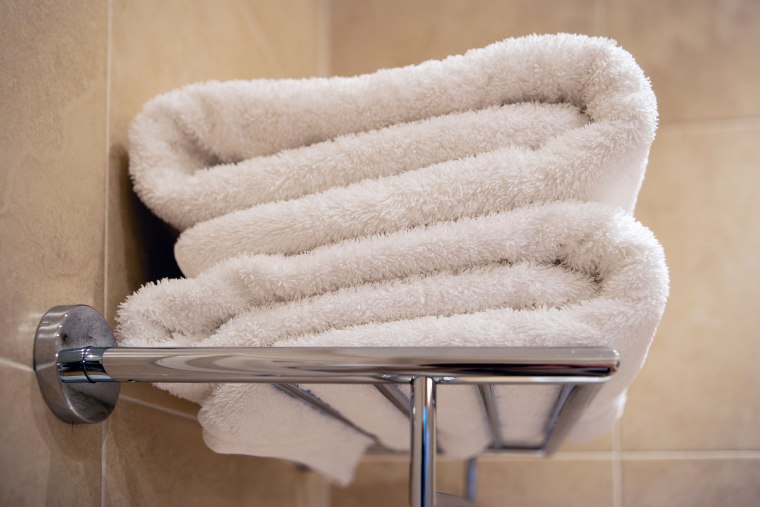
Bath towels
There’s no hard and fast rule here, but to get that fluffy feeling when you step out of the shower, you’ll want to replace your bath towels when they lose their absorbency — which experts say is about every two years.
"Towels are subject to daily use and frequent washing, so it's inevitable that they will eventually start looking tired," Parachute founder Ariel Kaye told TODAY. "We suggest donating your old towels to your local animal shelter or re-purposing them as cleaning rags. Good for you, good for the environment." Keeping them clean in the meantime helps avoid mold and mildew and protects you from allergens, so launder every three uses.
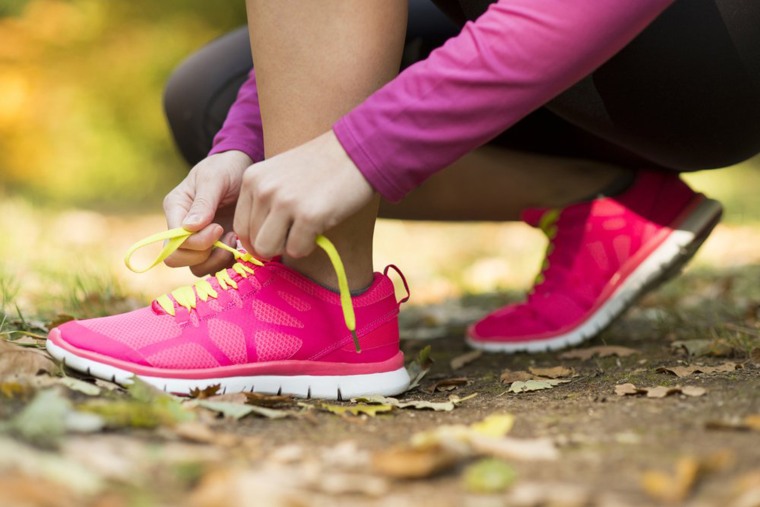
Running shoes
This is one of the most hard-to-define categories, because no two runners wear out their shoes the same way. (In fact, some hardcore runners we talked to for this story declined to be identified, noting that no one wants to offer "rules" on the subject!)
The general guideline is that you should replace your shoes between 300 and 500 miles, but if you're not a serious runner, it can be hard to know what that means. Luckily, many free running or workout apps (like Nike+ Run Club), will track your miles and can even alert you when it's time to consider buying new shoes.
Here are some rough guidelines if you're totally in the dark. If you run or work out in your shoes twice a week, you should probably invest in a new pair once a year. On the other end of the spectrum, if you are running six to seven days a week, you'll burn through your shoes in more like four months. And if your workouts are somewhere in between, your replacement time will also fall somewhere on that spectrum.
You should also pay attention to these factors:
- The tread test: Flip your shoe over and check the tread on the bottom for flat spots or inconsistent wear. If you find places that are worn down, that's a sign that the rest of the shoe is ready to say goodbye.
- The bounce factor: If your shoes no longer feel bouncy or springy under your feet, they're likely not supporting you the way they should.
- Pain in your lower back, knees, ankles, shins or other muscle aches: These could be signs that your shoes are worn out.
The bottom line is not to keep wearing a worn-out pair of shoes, because when your shoes stop supporting you, you risk injury — and that's never worth it.